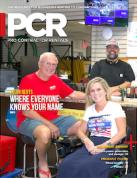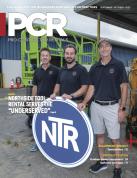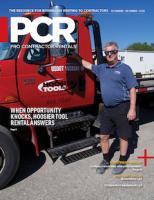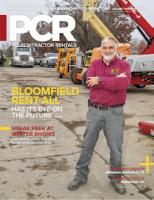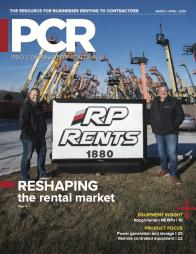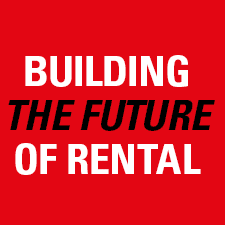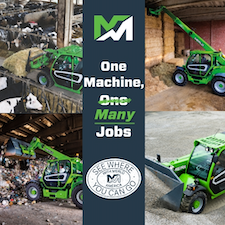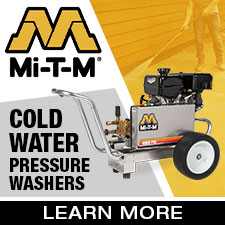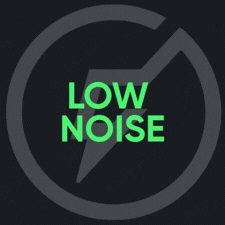Value-added
Independent reps play important role
By David Wolff
They are one of the unsung workhorses in the rental industry . . . until now.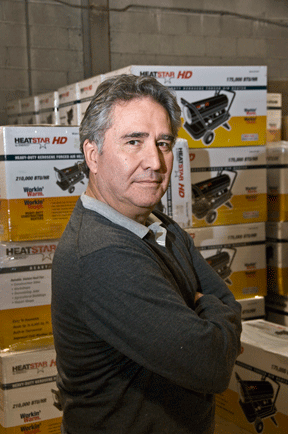 Independent manufacturer representatives are increasingly being recognized for the valuable role they play, and deservedly so. The days of looking at them as “middle men” are long past. Today, this group is seen as a valuable asset to rental stores and construction equipment suppliers.
Independent manufacturer representatives are increasingly being recognized for the valuable role they play, and deservedly so. The days of looking at them as “middle men” are long past. Today, this group is seen as a valuable asset to rental stores and construction equipment suppliers.
Joe Competello has been a rental industry manufacturer’s rep for more than 35 years. His company, Viking Representatives, Newark, N.J., calls on more than 3,000 customers in the Northeast from Maine to Virginia.
“The biggest misconception over the years about manufacturer reps is that we are merely product distributors,” Competello says. “We provide many more services to our customers.”
Reps add value
Manufacturer’s reps add value on many levels. They are a liaison between the manufacturer and the customer to introduce products and provide training. For rental stores, their job is to bring quality products to these outlets to help them maximize revenues.
From his position as a seasoned veteran, Competello is a major ally for the manufacturer because he knows the playing field and gives them immediate exposure to decision makers.
Many times manufacturers use independent reps to reduce overhead costs. Reps are paid based on commissions from sales, so the manufacturer’s cost is directly proportional to sales, with limited fixed costs.
“Of course there’s a selling expense,” Competello says, “but in our case that is a fixed cost in the form of commission. If there is a recession and business is off, sales expense doesn’t affect the price of the product. Most rental stores
understand that we don’t add to the cost of the product. If anything, we decrease the cost because we’re the least expensive way for a manufacturer to go to market.”
Changing business model
When Competello began his career, many of his customers were the businesses’ founders.
“They had a passion for equipment and knew how to fix it themselves,” he says. “The business model today is different. The second generation is deeply involved or in charge. They are sophisticated about business and want return on investment. They spend time developing business plans. They’ve taken what their fathers started and expanded to the next level. This is not a pat-on-the-back business anymore. We have to go in with a purpose and show them how they can maximize their profits with what we have.”
Another change in the market is the emergence of national rental chains, which has made the playing field smaller. More and more, smaller, independent rental stores are making a living on customer service. They can adapt and move faster than a national chain that may have to adhere to specific policies and procedures, which can cause delays for the end user.
Humble beginnings
Viking was started in 1975 by Howard Beresford. Competello joined him in 1980, and they became partners two years later.
Product offerings range from concrete grinders, hydraulic hammers, heaters, pressure washers, lifts, scaffolding, compaction equipment, generators and trenchers to highway safety products, such as, message and arrow boards and light towers.
“Any products we take on have to be synergistic with the lines we’re already carrying,” Competello says. “We don’t carry competitive product lines, but consolidation has made it tougher for reps like us. Sometimes we have to choose one manufacturer over another, or tell them we can’t handle one segment of their product line.”
Competello and another partner, Daren Cowan, have a second company, Satellite Sales Inc. Together, the operations have 12 salespeople and a 10,000-square-foot warehouse in Newark. The facility is used by manufacturers to store equipment that can be delivered to rental customers quickly and economically.
Industry outlook
Construction activity in the Northeast hasn’t been dynamic since 2008. However, in New York and New Jersey, business has continued on a slow and steady pace thanks in part to the large population. Historically, contractors prefer to buy equipment, but because of construction market uncertainty, many see rental as a more desirable option.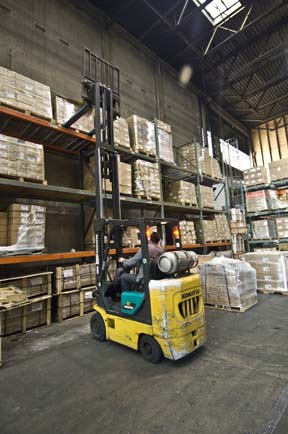 To survive, rental centers must be as efficient as possible, and that means making sure equipment is “rental-ready.”
To survive, rental centers must be as efficient as possible, and that means making sure equipment is “rental-ready.”
“When considering the purchase of a piece of equipment for rental,” he explains, “it’s critical for the store to look at how long equipment remains in inventory before it is turned. Also, there is a point of diminishing returns with older units. Repairs reach a point where they are too costly and it’s time to let that piece of equipment go and buy a new one. We help advise rental stores on when a piece of equipment has outlived its usefulness, and how we can get them into a new unit that is more efficient. We have several services available to assist with lease and finance options.”
In challenging times, the role of the independent manufacturer’s rep has never been more important.
“Our job is two-fold,” Competello says. “First, we market the products we’re representing for individual manufacturers. The rep business is an inexpensive way for them to get to rental center decision makers quickly. Second, we want to be partners in the rental center’s business. Because we’ve been around more than 35 years, we have quite a bit of credibility with our customers; we’ve built up a lot of trust. We can go to them with a new product or one that is unknown to them and get an audience because we’re handling it. It’s our job to make the rental center more efficient and profitable.”
Originally published in the January/February 2014 issue of Pro Contractor Rentals. Copyright 2014 Direct Business Media.




